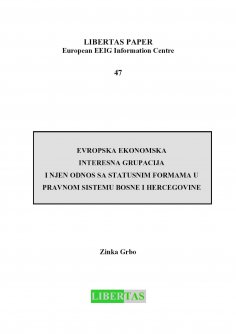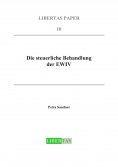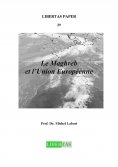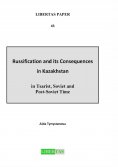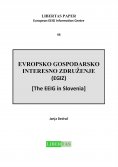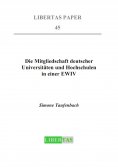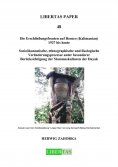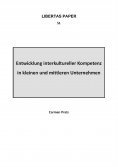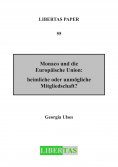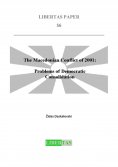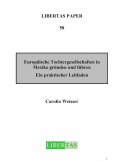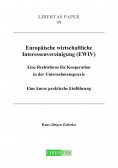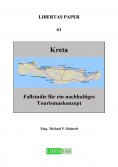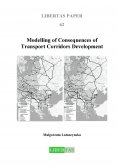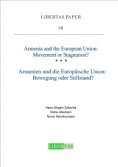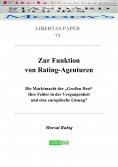Evropska Ekonomska Interesna Grupacija I Njen Odnos sa Statusnim Formama u Pravnom Sistemu Bosne I H
About the eBook
The European Economic Interest Grouping (EEIG) is a very important element of European cooperation in the domain of company law: one that has characterized the past fifty years, as part of the process of integration. The trajectory of this process was focused on the creation of the European Union and then on its expansion and enlargement. The prerequisite for the emergence of the European Union was the linking of the national markets of the countries of Europe by means of various supranational instruments. One of these points of connection was beyond doubt EEIG. Institutionalized cooperation in the domain of the common/single market was brought about by the introduction of this new subject into the Community's legal system.
The European Economic Interest Grouping was the first legal form constituted and realized under the Community law. Since transnational cooperation between national markets via known forms of cooperation had become more difficult, above all because of differences in the provisions of national law in different countries, the supranational character of an institution such as EEIG was one of its key strengths. This feature of EEIG was secured by Council Regulation (EEC) No. 2137/85, the only instrument in the domain of commercial or company law to enter into force. The supranational character of European Economic Interest Groupings ensured 'legal neutrality' in the relations between and position of their members: the legal neutrality of the EEIG means that its members are on an equal footing. To be a member of an EEIG meant accepting the uniform regulations of Regulation No. 2137/85, which made it impossible to give precedence to any member on national grounds.
An EEIG can be formed solely by legal or natural bodies from various member states of the European Union or the European Economic Area. This feature means that the EEIG may be regarded as an international or transnational instrument of cooperation between economic operators, independent of their national laws.
The purpose of forming a European Economic Interest Grouping, as a new form of cooperation between commercial subjects, is the development of economic activity within the European Community. In the specific sense, the grouping's mission is to facilitate and advance its members' economic activities, though the EEIG itself is non-profit-making. The activities of the grouping are thus of an ancillary, supporting nature, and must be complementary to the activities of its members. As a result of this feature of the EEIG's activities, its members retain a high degree of autonomy, which is significant from the perspective of potential founders and members.
The manner of forming a European Economic Interest Grouping renders it a very flexible supranational instrument of cooperation. An EEIG may be formed by agreement by a minimum of just two subjects from different member countries which conduct economic activity in the European Union, Norway, Lichtenstein and Iceland; no capital is required. Nonetheless, shareholdings of all forms are permitted, which is an added attraction and offers opportunities for a large number of subjects to achieve membership of the grouping. This is of particular importance for the internationalization of small and medium-sized enterprises. A European Economic Interest Grouping may be formed for a specific term or an unlimited period, which also indicates the flexibility or contractual freedom of its members. The most significant determinant of the flexibility of this form of cooperation, however, is the potential to transfer the grouping's official address from one member state to another without the need to re-establish the grouping in the State in wich it has its new official address. The difficulties accompanying a firm moving its official address from one state to another are primarily a matter of jurisdiction, which is avoided in the case EEIG's so doing.
One of the essential features of a EEIG is reflected in the opportunity of EEIG to have legal capacity. In this way EEIG is assured of stability, unlike contractual forms of cooperation. The existence of its own organization, through which its interests are realized, certainly also has an impact on EEIG's stability. This feature of the European Economic Interest Grouping is particularly important, and is expressed in the involvement of its members, in particular small and medium-sized enterprised, in public works and funding programmes. The unlimited joint and several liability of members of EEIG should also be mentioned; this ensures the protection of third parties as EEIG's legal partners, and makes such grouping an attractive form of association from the psychological perspective.
The topicality of the European Economic Interest Grouping as a supranational form of cooperation between economic operators in the European Union is echoed in Bosnia and Herzegovina, as in other countries of the region. It is Bosnia and Herzegovina's strategic aim to join the European Union, which requires the harmonization and/or unification of domestic and community law. The European economic interest group is an institution of Community law that is incorporated into the legislation of every European Union member states, as well as some that are not members. Since Bosnia and Herzegovina is endeavouring to keep up with European trends, this raises the question of to what extent the conditions for introducing this institution into its legal system can be said to be met. In this regard, it is essential to consider the relevant provisions of the laws of the Federation of Bosnia and Herzegovina and Republika Srpska.
A European Economic Interest Grouping corresponds, from the perspective of its members, to a sui generis form of merger companies, while if regarded as a distinct subject it has some features of a company with unlimited joint and several liability. The relevant laws of Bosnia and Herzegovina recognize such forms, which is certainly a prerequisite for the legal treatment of a EEIG in our law. With the addition of provisions on merger companies, the legal prerequisites for the formation of subjects on the principle of EEIG would be fulfilled. It must not be forgotten, however, that this would be only a partial solution to the problem of unifying domestic and Community law. To achieve full harmonization of the relevant provisions, it would be beneficial to follow the example of Slovenia, but the overriding priority is to harmonize the legislation of the Federation of Bosnia and Herzegovina and Republika Srpska.
Product Details
Publisher: Libertas
Genre: Sprache - Sonstige
Language: hrv
Size: 70 Pages
Filesize: 0 bytes
ISBN: 9783946119531
Published: Aug. 6, 2003
